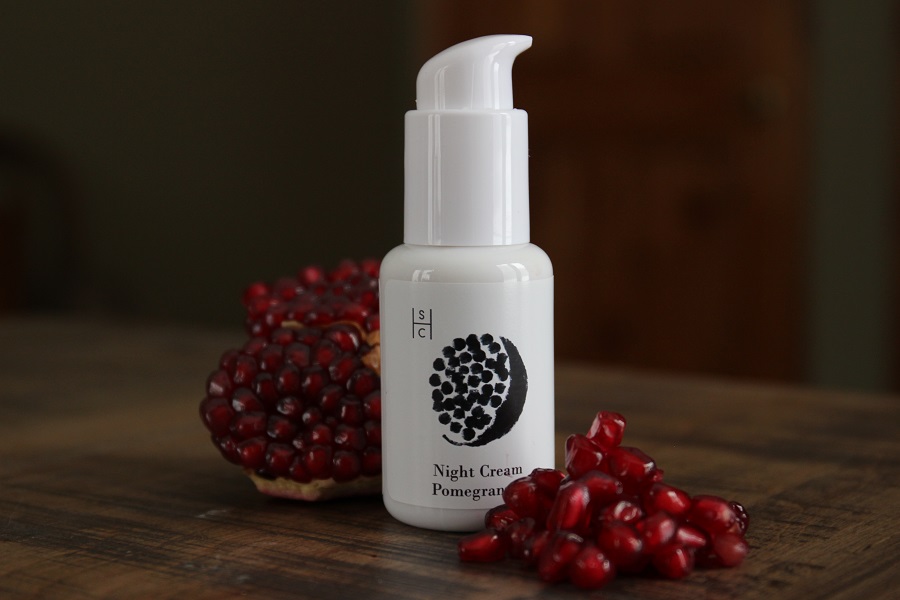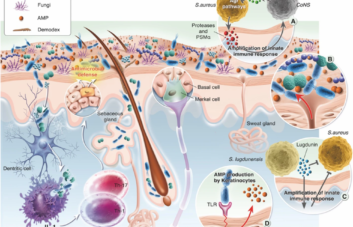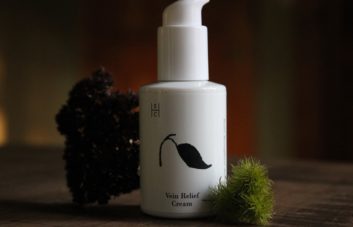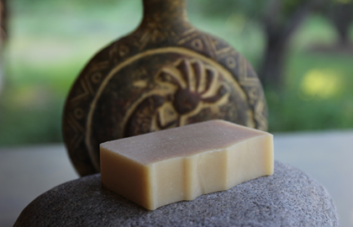It is not by a chance, that the main component of my Night Cream “Pomegranate” is Pomegranate seed oil. In 2000, Pomegranate was chosen as a symbol of the 2000 UK Millennial Festival of Medicine for its unique medicinal properties (1). For centuries the plant has been considered sacred. The last few decades saw a lot of scientific evidence for beneficial health effects of Pomegranate seed oil on skin.
How does Pomegranate seed oil improves your skin condition
Searching the biomedical science literature database PubMed returns about 200 articles on biological activity of Pomegranate. In cosmetology and medicine, all parts of the plant are used: peel, juice and seeds. I will focus on seed oil, consisting by 98% of polyunsaturated fatty acids that restore and rejuvenate the skin. There are also polyphenols – antioxidants – that protect the skin from free radicals and slow down aging. Below, I will briefly describe benefits of Pomegranate seed oil proven by scientific studies.
Enhancement of Restoration
Pomegranate seed oil enhances the growth and division of cell in the outer epidermal layer of skin. This is a result of the study using the biopsy-derived pieces of human skin, suggesting same effect is expected on live human skin (2). It means, the oil can be used to facilitate skin restoration after various environmental detrimental exposures which are plentiful in big cities.
Enrichment with Antioxidants
Antioxidants protect skin from aging by destroying molecules that damage our cells. Studies showed that Pomegranate seed oil is a very strong antioxidant, stronger than red wine (3). However, not only is it a rich source of antioxidants, but it is also working as a tunnel – due to its chemical properties – leading the way for antioxidants through the protective epidermal skin layer (4).
This is a remarkable finding – because it means that when added to a cream, not only does Pomegranate oil supplies antioxidants, but it can also help the skin absorb other antioxidants present in the cream.
Protection from Solar UV
It is well known that solar radiation damages DNA of skin cells and destroys collagen fibres, leading to wrinkle formation and skin aging. This is collectively called “photoaging”. A subtype of solar UV radiation, called UVB, can penetrate deep into the skin to cause all these detriments. Antioxidants found in Pomegranate seed oil are very effective in protecting from these negative UVB effects.
Studies demonstrated that skin treated with Pomegranate oil prevents collagen destruction by UVB, protects cellular DNA and proteins from radiation damage, and suppresses oxidative reactions (5).
Soothing Inflammation
Pomegranate oil soothes inflammatory processes, leading to better regeneration of damaged skin. This is shown in a mouse study where scientists tested a suspension with Pomegranate seed oil, with an anti-burns medication or an empty suspension. Ears of laboratory rodents were treated with a test suspension followed by exposure of the ears to UVB. It turned out that strong anti-inflammatory and healing effects in mice treated with Pomegranate containing suspension equaled that of standard medication. The control suspension without active component did not help. Pomegranate treated skin had eased inflammation at 24, 48 and even 72 hours after exposure to damaging UVB (6).
Anti-Cancer Effects
Pomegranate seed oil lowers the risk of skin cancer. Another mouse study showed that applying Pomegranate seed oil on the skin of laboratory mice prior to cancer inducing treatment lowered their chances to get skin cancer (7).
In my Night Cream “Pomegranate” I add organic cold pressed Pomegranate seed oil. This component has the highest possible quality. The cream is also supplemented with Poppy seed oil, Rose de Mai CO2 extract and the essential oil of Rosewood. The cream improves appearance of the skin and enhances restoration during the night rest. It has a gentle fruity and flowery scent combined with rich texture.
Jump to Night Cream Pomegranate page.
Copyright Snejana Hill Cosmetics. Use of this text or parts of this text without prior written permission from Snejana Hill Cosmetics is prohibited.
References
- Langley, P. (2000). “Why a pomegranate?” BMJ 321(7269): 1153-1154.
- Aslam, M. N., E. P. Lansky, et al. (2006). “Pomegranate as a cosmeceutical source: pomegranate fractions promote proliferation and procollagen synthesis and inhibit matrix metalloproteinase-1 production in human skin cells.” J Ethnopharmacol 103(3): 311-318.
- Schubert, S. Y., E. P. Lansky, et al. (1999). “Antioxidant and eicosanoid enzyme inhibition properties of pomegranate seed oil and fermented juice flavonoids.” J Ethnopharmacol 66(1): 11-17.
- Liu, W., Q. Zhao, et al. (2018). “Pomegranate Seed Oil Enhances the Percutaneous Absorption of trans-Resveratrol.” J Oleo Sci 67(4): 479-487.
- Afaq, F., M. A. Zaid, et al. (2009). “Protective effect of pomegranate-derived products on UVB-mediated damage in human reconstituted skin.” Exp Dermatol 18(6): 553-561.
- Marchiori, M. C. L., C. Rigon, et al. (2017). “Hydrogel containing silibinin-loaded pomegranate oil based nanocapsules exhibits anti-inflammatory effects on skin damage UVB radiation-induced in mice.” J Photochem Photobiol B 170: 25-32.
- Hora, J. J., E. R. Maydew, et al. (2003). “Chemopreventive effects of pomegranate seed oil on skin tumor development in CD1 mice.” J Med Food 6(3): 157-161.




